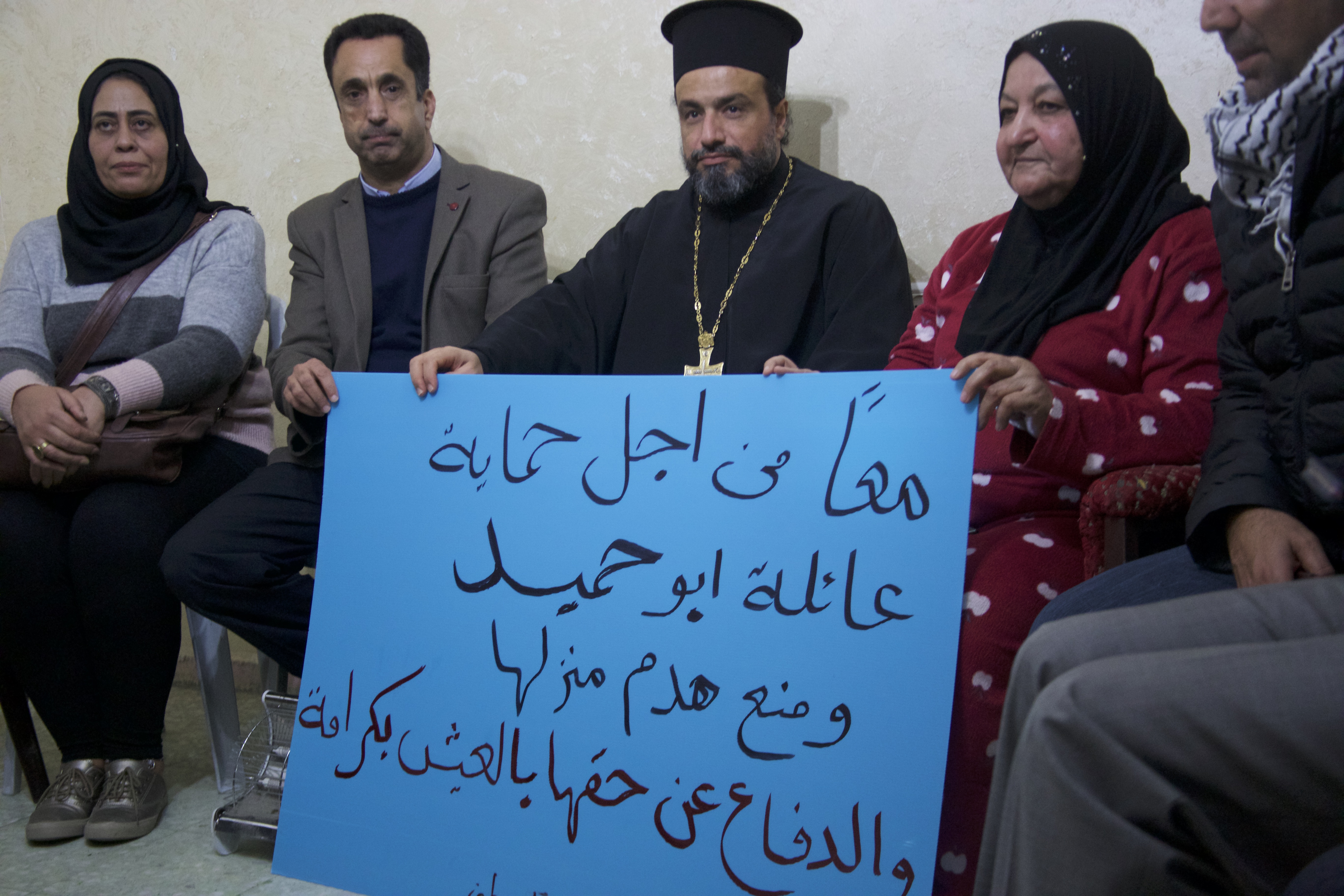Tag: Demolition
-
In Pictures: Wadi al-Hummus demolitions, 22 July
July 30 2019 | International Solidarity Movement | Wadi al-Hummus, occupied Palestine
-
Water Series: IOF destroy farmland east of Hebron – ISM speaks to owner Ghassan Jaber
July 30 2019 | International Solidarity Movement | Bit Arawa, occupied Palestine This is the first of a series of reports documenting the control and devastation of water sources by Israel as a tool of oppression. On Thursday 18th July Israeli Occupation Forces (IOF) came to the Al Baqa’a area, east of Hebron, and…
-
Abu Humaid’s Family Home Issued Demolition Notice
The Abu Humaid family from the Al Amari refugee camp held a press conference in defiance of the notification for the demolition of their 4 story home. The Israeli Forces want to destroy the Al Amari building because of their long history of resistance against the Occupation.


